Immerse yourself in the riveting journey of the British arrival, where history was rewritten, and the Bahamas forever altered. Experience the allure of the settlements, the triumph over notorious pirates, and the emergence of a crown colony.
From the economic shifts of plantation agriculture to the establishment of a legal system, the echoes of this pivotal era continue to resonate throughout the Bahamas.
Brace yourself for an enthralling expedition through time as we unravel the captivating story of the British arrival and its lasting impact on the islands.
Arrival of the British
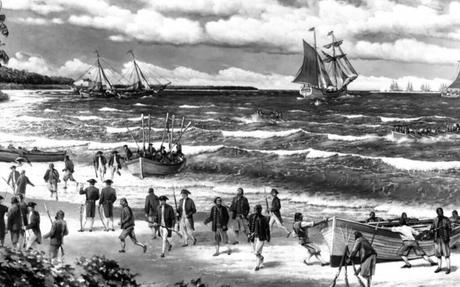
The British arrival in the Bahamas in the 17th century marked a significant turning point in the islands’ history. Initially granted to Sir Robert Heath by King Charles I in 1629, it wasn’t until 1647 that the first wave of English Puritans, known as the “Eleutheran Adventurers,” sought refuge in the Bahamas. They established the first English settlement on Eleuthera, beginning a sustained British presence and setting the stage for future developments.
The early years of British rule faced challenges as pirates frequented the islands, establishing their own governing system with the notorious “pirate code.” However, by 1718, the British regained control, putting an end to the pirate activities and solidifying their authority over the Bahamas.
With the restoration of British control, the Bahamas became a crown colony, ushering in a new era of transformation. The British government implemented measures to develop the islands, constructing forts and encouraging trade to attract new settlers. The Bahamas became a destination for loyalists escaping the American Revolution and African slaves brought to work on plantations.
The introduction of plantations brought about significant economic changes in the Bahamas. Sugarcane, cotton, and sisal became major cash crops, shaping the social structure of the islands. The British established a legal system and governance structures to effectively administer the colony, further solidifying their influence.
Throughout the years, the Bahamas adapted to changing circumstances while remaining under British rule. During World War II, the islands played a strategic role as a base for Allied operations in the Atlantic. In 1964, the Bahamas achieved self-governance, leading to full independence within the Commonwealth of Nations in 1973, while still recognizing Queen Elizabeth II as the Head of State.
The arrival of the British in the Bahamas paved the way for the islands’ development and transformation. From the initial settlement by the Eleutheran Adventurers to the end of the pirate era and the subsequent growth of the plantation system, British influence left an enduring impact on the culture, society, and governance of the Bahamas. Today, the Bahamas stands as a vibrant nation, blending its rich history with its status as a popular tourist destination and a leading financial center in the Caribbean.
Economic Impact
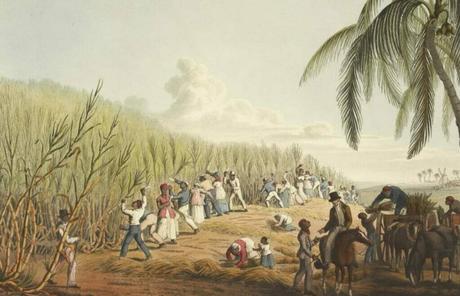
The economic impact of British rule in the Bahamas during the colonial period was profound. Plantation agriculture, particularly focused on cotton, transformed the region’s economy. Large-scale plantations were established, employing enslaved Africans to work the fields. This lucrative system of plantation agriculture relied on the exploitation of enslaved labor, fueling economic prosperity while leaving a lasting and painful legacy on Bahamian society and culture.
The profitability of the plantation economy and the demand for enslaved labor contributed to the thriving slave trade in the Bahamas. Enslaved Africans were forcibly brought from Africa to work on the plantations, enduring harsh conditions and suffering. This institution of slavery, though economically prosperous for the colony, had a significant human cost, shaping the social fabric of the Bahamas and leaving enduring imprints on its collective memory.
The economic impact of British rule extended beyond the plantation economy. Revenue generated from plantation agriculture and the slave trade facilitated the development of infrastructure, including ports, roads, and public buildings. Trade and commerce flourished, positioning the Bahamas as a hub for the exchange of goods within the British Empire.
However, the economic prosperity achieved during this period came at a profound human cost, as the legacy of slavery continues to be acknowledged and examined in present-day Bahamas, fostering a deeper understanding of the complex history that shaped the nation.
Plantations, Slavery, and the Complex Legacy of British Rule in the Bahamas
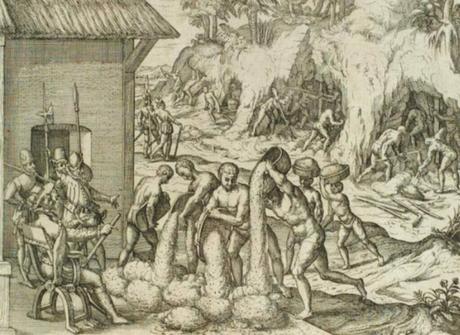
The economic impact of British rule in the Bahamas during the colonial period was far-reaching and multifaceted. The establishment of plantation agriculture, centered around crops such as cotton, brought about significant transformations in the region’s economy. Here are some key examples of the economic impact:
- Plantation Agriculture: Large-scale plantations were set up in the Bahamas, primarily utilizing enslaved African labor. The profitability of the plantation economy drove economic growth, creating a prosperous agricultural sector that generated substantial wealth for British planters.
- Exploitation of Enslaved Labor: The plantation economy relied heavily on the brutal institution of slavery. Enslaved Africans were forcibly transported from Africa to the Bahamas and subjected to harsh working conditions on the plantations. Their labor was fundamental to the success of the agricultural sector, but the human cost was immense, leaving a lasting and painful legacy on Bahamian society and culture.
- Thriving Slave Trade: The demand for enslaved labor led to a flourishing slave trade in the Bahamas. Enslaved Africans were forcefully brought to the islands, enduring unimaginable hardships during the Middle Passage and subsequent enslavement. The slave trade served as a significant economic engine, contributing to the prosperity of the colony but perpetuating human suffering.
- Development of Infrastructure: The economic success of plantation agriculture and the slave trade facilitated the development of essential infrastructure in the Bahamas. Revenue generated from these economic activities was invested in the construction of ports, roads, and public buildings. This development further positioned the Bahamas as a vital hub for trade and commerce within the British Empire.
Social Transformation
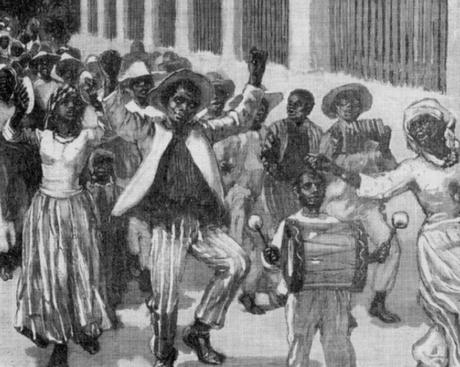
The social transformation brought about by British rule in the Bahamas had a lasting impact on the fabric of society. The institution of slavery and the introduction of British societal norms shaped a hierarchical structure, with white British planters at the top and enslaved Africans at the bottom. This division created a deep racial divide that persisted long after the abolition of slavery in 1834, leaving an enduring legacy on Bahamian society.
The establishment of a hierarchical society under British rule created a social structure that privileged the British planters and marginalized the enslaved Africans. This system reinforced racial divisions, leading to a lasting social imbalance in the Bahamas. The repercussions of this social structure can still be seen today, as the Bahamas continues to grapple with the legacy of slavery and work towards a more equitable society.
In addition to the institution of slavery, the British brought with them the Church of England, now known as the Anglican Church. The influence of Christianity significantly impacted Bahamian society, influencing education, law, and social practices. The Anglican Church became deeply embedded in the cultural and social fabric of the Bahamas, playing a central role in shaping religious beliefs and practices.
The social transformation brought about by the British presence in the Bahamas reflects a complex history of power dynamics, racial divisions, and religious influence. Today, the Bahamas continues to navigate the effects of this transformation, working towards greater social equality and recognizing the diverse influences that have shaped its society.
Political Changes
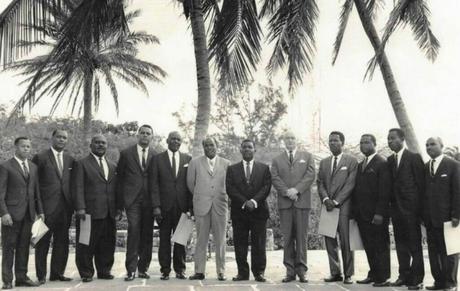
The political changes brought about by British rule in the Bahamas have left a lasting imprint on the nation’s governance. The establishment of a crown colony in 1718 introduced a structured form of government that continues to shape the political landscape. Under this system, a Governor appointed by the British monarch and a legislature known as the General Assembly were established, providing a framework for political administration.
The British influence extended beyond the political structure to the legal system. The introduction of British law laid the foundation for the current Bahamian legal system, which incorporates elements of British common law. The legal principles and institutions introduced during British rule continue to serve as the basis of the Bahamian legal framework.
Significant political changes occurred in the Bahamas in the 20th century. The shift to a constitutional monarchy in 1964 marked a notable step towards self-governance. While the Bahamas achieved self-governance, with the right to make decisions on internal matters, the Queen of England remains the official head of state, symbolizing the enduring ties to British rule.
The political changes brought about by British rule in the Bahamas have contributed to the nation’s political stability and adherence to democratic principles. The established governance structure and legal system have provided a framework for the Bahamas to govern itself while retaining a connection to its historical ties with the British monarchy.
Today, the Bahamas continues to navigate its political landscape, building on the foundations established during British rule. The legacy of British governance and the enduring influence of this period shape the political institutions, legal system, and overall political culture of the Bahamas.
Culture and Language
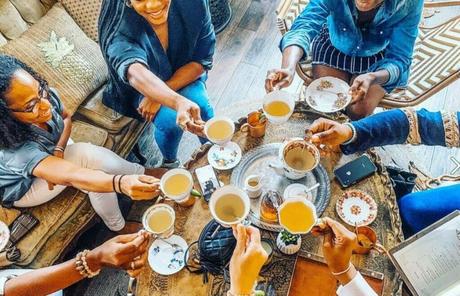
The cultural and linguistic landscape of the Bahamas bears the indelible mark of British rule. English, introduced by the British, serves as the official language of the Bahamas. However, it is the unique dialect and accent known as Bahamian English that exemplifies the synthesis of British influence and native elements. Bahamian English combines Queen’s diction, African influences, and island dialect, creating an auditory testament to the region’s historical legacy.
The British influence extends beyond language and permeates Bahamian culture. British traditions have become intricately woven into the cultural fabric of the Bahamas. Architecturally, the influence of British styles can be seen, particularly in Nassau, where Georgian Colonial architecture, popular during the reign of King George in 18th-century England, predominates. This architectural style contributes to the distinctive visual identity of the Bahamas.
British cultural traditions have also found a home in the Bahamas. From the cherished tradition of afternoon tea to the love for cricket, aspects of British culture have been embraced and incorporated into the Bahamian lifestyle. These traditions, however, have evolved and adapted over time, incorporating native customs and the African heritage of the majority of the population. The result is a vibrant and distinct Bahamian culture that beautifully merges British influences with local traditions.
The cultural and linguistic impact of British rule in the Bahamas highlights the ongoing legacy of this historical period. The fusion of British and indigenous elements has created a unique cultural identity that sets the Bahamas apart. It is a testament to the ability of cultures to intersect, blend, and evolve, shaping the rich and diverse tapestry of the Bahamian people
Dynamics of Power and Resistance
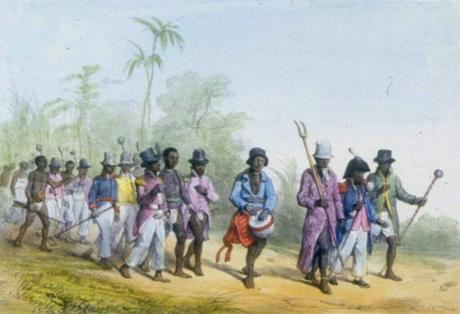
Enslaved Africans demonstrated remarkable resilience and resistance during British rule in the Bahamas. Examples of their acts of defiance include:
- Sabotage: Enslaved individuals engaged in acts of sabotage, disrupting plantation operations and challenging the authority of their oppressors.
- Maroon Communities: Some enslaved Africans escaped from plantations and formed maroon communities in remote and inaccessible areas of the islands. These communities became centers of resistance and self-governance, defying British control.
Indigenous communities in the Bahamas also played a significant role in resisting British domination. Their efforts to maintain their cultural practices and negotiate for autonomy included:
- Cultural Preservation: Indigenous communities worked to preserve their cultural heritage, maintaining traditions, language, and spiritual practices despite the encroachment of British influence.
- Negotiations and Diplomacy: Indigenous leaders engaged in negotiations with the British, aiming to protect their lands and assert their rights, often through diplomatic channels and strategic alliances.
Within the British colonial administration, power struggles and tensions shaped the dynamics of governance in the Bahamas:
- Colonial Authorities vs. Planters: Conflict and competition existed between the British colonial authorities and the wealthy planters over political and economic control, resulting in complex power dynamics.
- Local Representation: Over time, movements advocating for political representation and increased control over local affairs emerged, challenging the authority of the British colonial administration.
The legacy of these power dynamics and resistance efforts continues to resonate in the Bahamas. It has fostered a greater awareness of social justice, equality, and cultural preservation. Ongoing efforts aim to address historical injustices and promote inclusivity, working towards a more equitable future where the voices and experiences of all communities are recognized and valued.
Legacy of British Rule
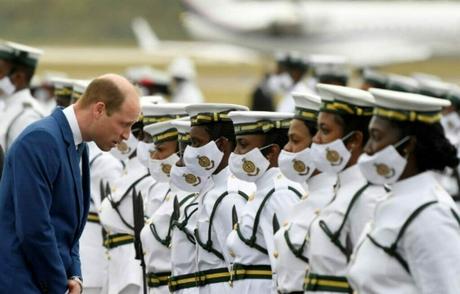
The legacy of British rule in the Bahamas is multifaceted and enduring. Economically, it helped shape the Bahamas into a prosperous colony, although this was underpinned by the horrific institution of slavery. Socially, it introduced a new societal structure and religious practices that continue to influence Bahamian culture today.
Politically, the British rule laid the foundation for the modern Bahamian state, establishing political structures and legal systems that persist. Despite gaining independence in 1973, the Bahamas continues to be a member of the Commonwealth, a testament to the enduring legacy of British rule. The islands today echo the influence of the British, from the architecture in Nassau to the popular sports like cricket, imprinting a distinct British flavor on the vibrant Bahamian culture.
Enduring Impact of British Rule
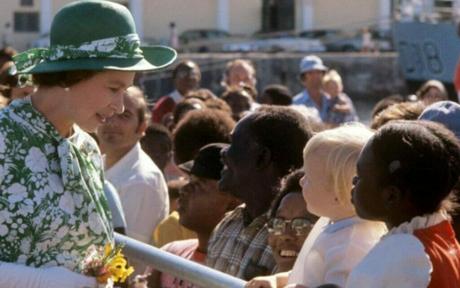
- Economic Legacy:
- British rule played a significant role in shaping the economic development of the Bahamas. The establishment of plantations and the exploitation of natural resources contributed to the colony’s prosperity.
- The plantation economy was heavily reliant on the labor of enslaved Africans, who endured tremendous suffering and exploitation during this period.
- The legacy of British economic policies and infrastructure development laid the groundwork for subsequent economic activities, such as tourism and offshore financial services, which are key pillars of the modern Bahamian economy.
- Social Legacy:
- British rule introduced a new societal structure that is still evident today. It created a hierarchical system with British colonizers at the top, followed by free Blacks, and enslaved Africans at the bottom.
- The institution of slavery left a lasting impact on the social fabric of the Bahamas, with many Afro-Bahamians tracing their ancestry back to enslaved Africans.
- British religious practices, primarily Anglicanism, were introduced and continue to play a significant role in Bahamian society. The Anglican Church remains a prominent denomination on the islands.
- Political Legacy:
- The British rule established political structures and legal systems that form the foundation of the modern Bahamian state.
- The system of governance, including the appointment of governors and the establishment of colonial administrations, influenced the development of Bahamian political institutions.
- The legal framework introduced by the British, based on English common law, continues to shape the legal system in the Bahamas.
- Continued Commonwealth Membership:
- Despite gaining independence in 1973, the Bahamas remains a member of the Commonwealth, demonstrating the enduring ties and influence of British rule.
- The Commonwealth membership reflects the historical and cultural connections between the Bahamas and the United Kingdom, as well as the ongoing cooperation and shared values among Commonwealth nations.
- Cultural Impact:
- British influence is visible in various aspects of Bahamian culture, including architecture, language, education, and sports.
- British architectural styles, such as colonial and Georgian designs, can be seen in historic buildings, particularly in the capital city of Nassau.
- The English language remains the official language of the Bahamas, reflecting the linguistic impact of British rule.
- British educational systems, including the curriculum and the structure of the education system, continue to shape the Bahamian educational landscape.
- Popular sports like cricket, which originated in England, have a strong following in the Bahamas and reflect the enduring influence of British culture.
The legacy of British rule in the Bahamas is complex, encompassing economic development, social structures, political institutions, cultural influences, and ongoing connections through Commonwealth membership. While it has undoubtedly left a lasting impact, it is important to acknowledge the dark history of slavery and the need for ongoing efforts to address its legacy in contemporary society.
FAQ
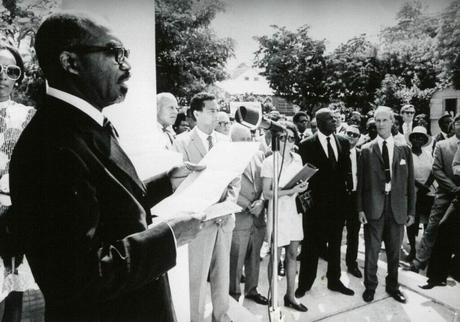
Is The Bahamas Still Under British Rule?
The Bahamas is not under British rule. The Bahamas gained independence from Britain on July 10, 1973, becoming a sovereign nation. Since then, it has operated as a constitutional monarchy with the Queen of England as the official head of state, represented by a Governor-General who acts on her behalf.
Is The Bahamas Ruled By The Queen?
The Bahamas is not directly ruled by the Queen of England. As an independent nation, the Bahamas operates as a constitutional monarchy, where the Queen serves as the ceremonial head of state. The day-to-day governance of the Bahamas is carried out by elected officials, led by a Prime Minister who holds executive authority.
When Did The Bahamas Gain Independence From Britain?
The Bahamas gained independence from Britain on July 10, 1973. After centuries of British colonial rule, the Bahamas became a sovereign nation, free from direct British control. This significant milestone marked a new chapter in the Bahamas’ history as it took charge of its own governance and pursued its path of self-determination.

